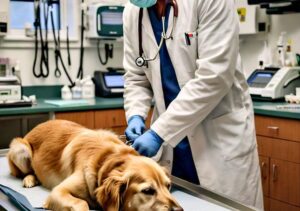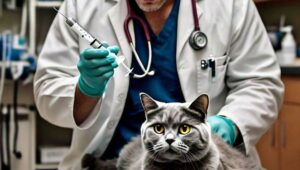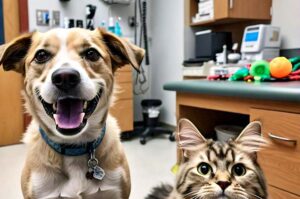
As a responsible pet owner, you want to ensure your furry friend lives a long and healthy life. One crucial step in achieving this goal is keeping up with pet vaccinations. While you may think that vaccinations are only necessary for humans, they are equally important for pets. In this blog post, we’ll delve into the reasons why pet vaccinations are essential and how they can benefit both your pet and your family.
Understanding Pet Vaccinations
Pet vaccinations work similarly to human vaccinations. They introduce a weakened or inactive form of a disease-causing agent into your pet’s body. This triggers the immune system to produce antibodies, which are proteins that fight off infections. When your pet is exposed to the actual disease, their immune system is prepared to combat it effectively.
Unvaccinated Pets:
A threat to public:
Unvaccinated pets are vulnerable to a range of serious, sometimes fatal diseases. These include rabies, distemper, parvovirus, and feline leukemia virus. Without vaccinations, pets lack the necessary immunity to fight off infections. This puts them at increased risk of illness, suffering, and even death. Additionally, unvaccinated pets can pose a threat to public health, as some diseases can be transmitted to humans. It’s crucial to consult with a veterinarian to create a personalized vaccination schedule for your pet, ensuring their optimal health and well-being.

The Importance of Pet Vaccination
There are several compelling reasons why you should prioritize pet vaccinations:
1. Prevent Deadly Diseases:
Many diseases that can affect pets are serious and can even be fatal. Vaccinations help protect your pet from these diseases, including:
- Rabies: A viral disease that can be transmitted to humans through bites. Rabies is almost always fatal if left untreated.
- Distemper: A highly contagious viral disease that can cause respiratory, gastrointestinal, and neurological problems in dogs.
- Parvovirus: A highly contagious viral disease that can cause severe vomiting, diarrhea, and dehydration in dogs.
- Feline Leukemia Virus (FeLV): A virus that can cause cancer and other serious health problems in cats.
- Feline Immunodeficiency Virus (FIV): A virus that weakens the immune system of cats, making them more susceptible to other infections.
- Protect Your Family:
Some diseases, such as rabies, can be transmitted from animals to humans. By vaccinating your pet, you are not only protecting your furry friend but also safeguarding your family members, especially young children and the elderly.
- Avoid Costly Veterinary Bills:
While the initial cost of vaccinations may seem significant, it is far less expensive than treating a serious illness. Early detection and prevention through vaccinations can save you from hefty veterinary bills and the emotional distress of a sick pet.
- Community Health:
Vaccinating your pet contributes to herd immunity, which helps protect the overall health of the pet population. When a significant portion of pets are vaccinated, it becomes more difficult for diseases to spread, benefiting all pets in the community.
Creating a Pet Vaccination Schedule
Your veterinarian will recommend a vaccination schedule tailored to your pet’s specific needs and lifestyle. Generally, core vaccines are recommended for all pets, while non-core vaccines may be recommended based on factors such as your pet’s age, breed, and living situation.
Core Vaccines:
- Dogs: Rabies, Distemper, Parvovirus, Canine Bordetella (kennel cough)
- Cats: Rabies, Feline Herpesvirus-1 (FHV-1), Feline Calicivirus (FCV), Feline Leukemia Virus (FeLV)
Non-Core Vaccines:
- Dogs: Leptospirosis, Lyme disease, Canine Influenza
- Cats: Feline Immunodeficiency Virus (FIV)
It’s important to note that vaccination schedules can vary depending on your location and the prevalence of certain diseases in your area. Your veterinarian can provide you with the most accurate and up-to-date information.
Animal Hospital of Aurora: We know what’s better for your pet
Vaccines protect your cat and dog from disease. It is comparable to a customized shield for your pet. We consider factors including their age, daily activities, and whether they may be in environments where they could become ill. Vaccines are more than simply shots; they are a vital means of preventing illness and maintaining your pet’s health. We at Animal Hospital of Aurora collaborate with you to identify the precise pet vaccinations your pet requires. It’s different for each pet; it’s like a customized plan to keep them robust and healthy.

Conclusion
By prioritizing pet vaccinations, you are making a significant investment in your pet’s health and well-being. Remember, prevention is always better than cure. Consult your veterinarian to create a personalized vaccination plan for your furry friend and ensure a long and happy life together.



